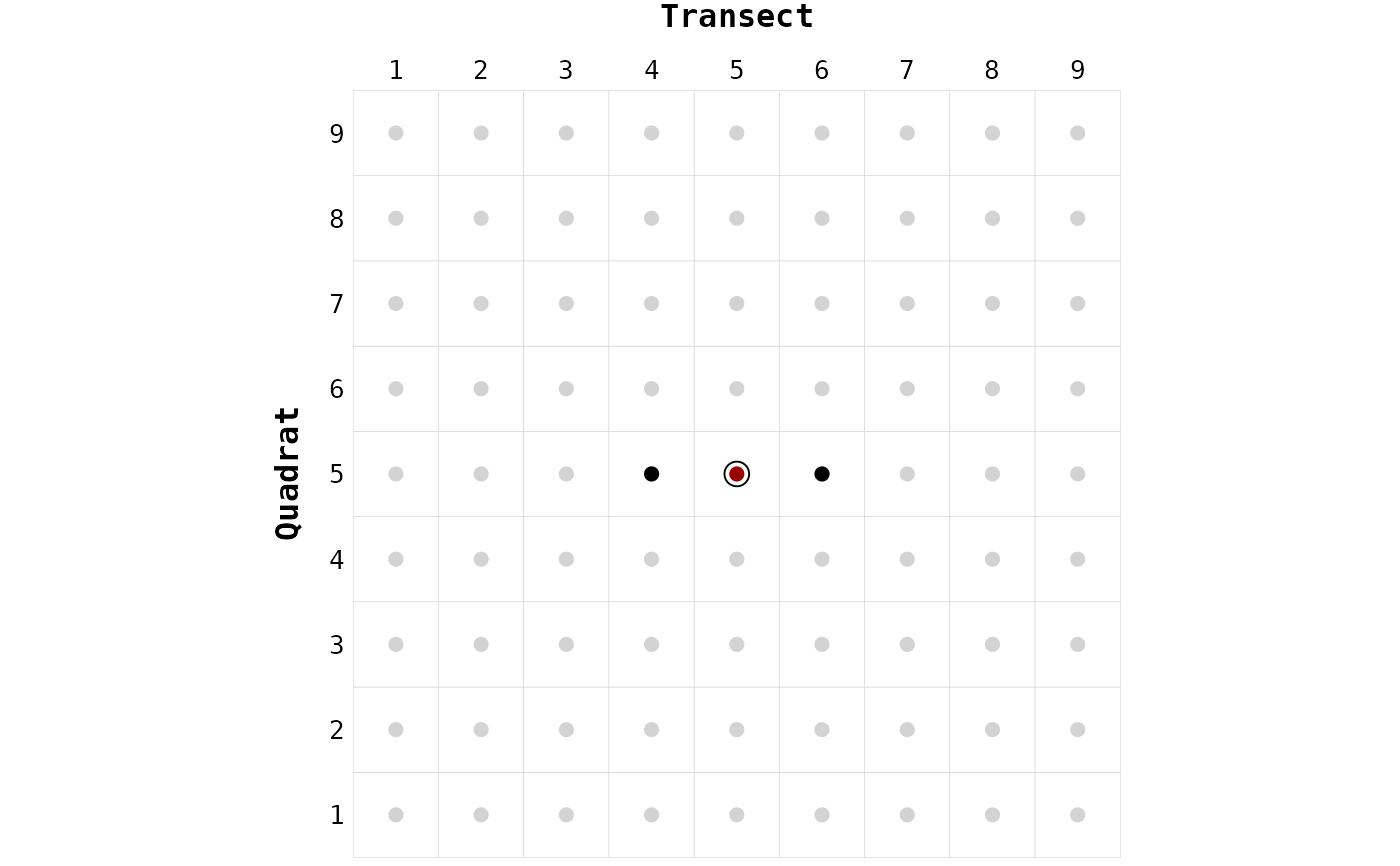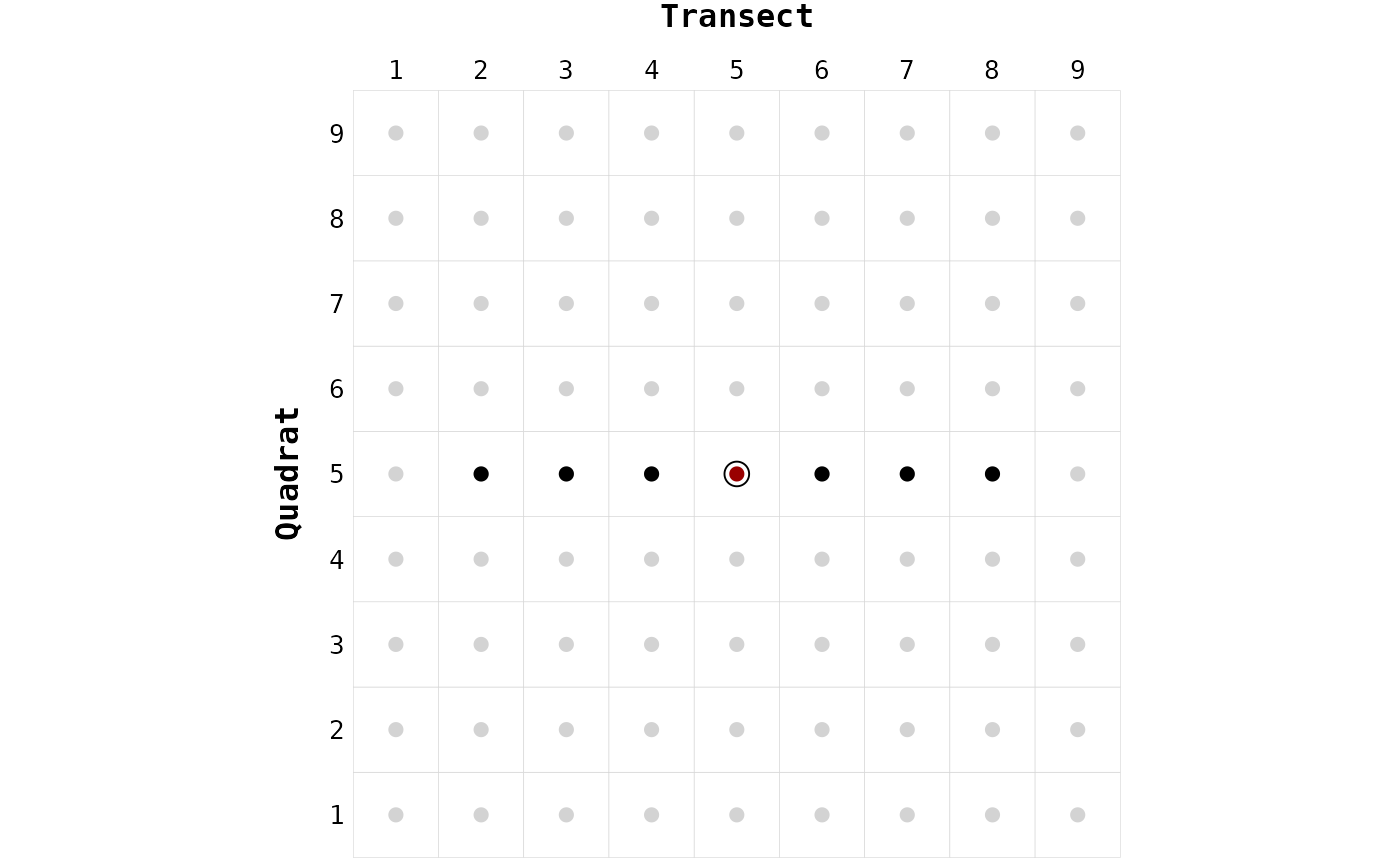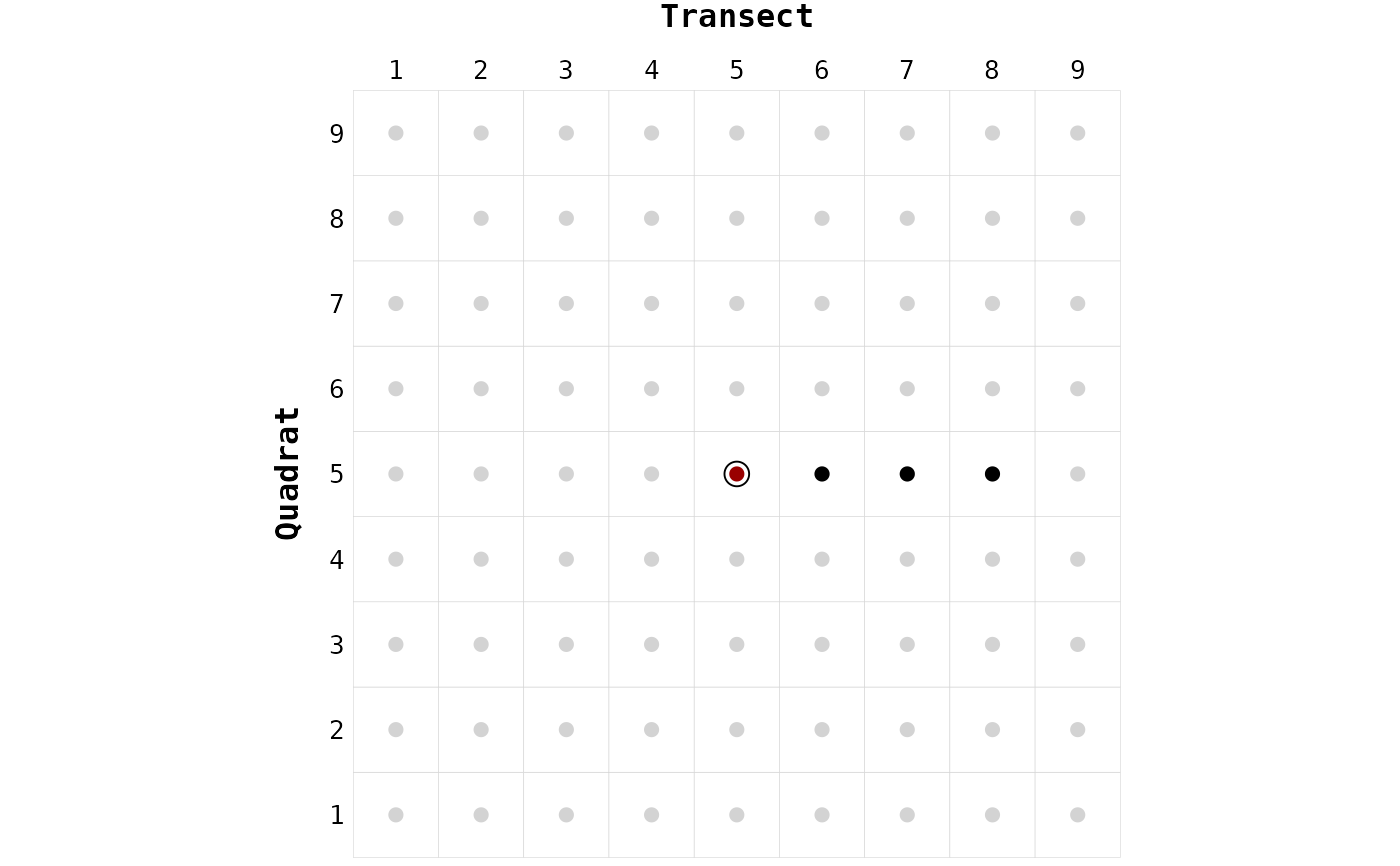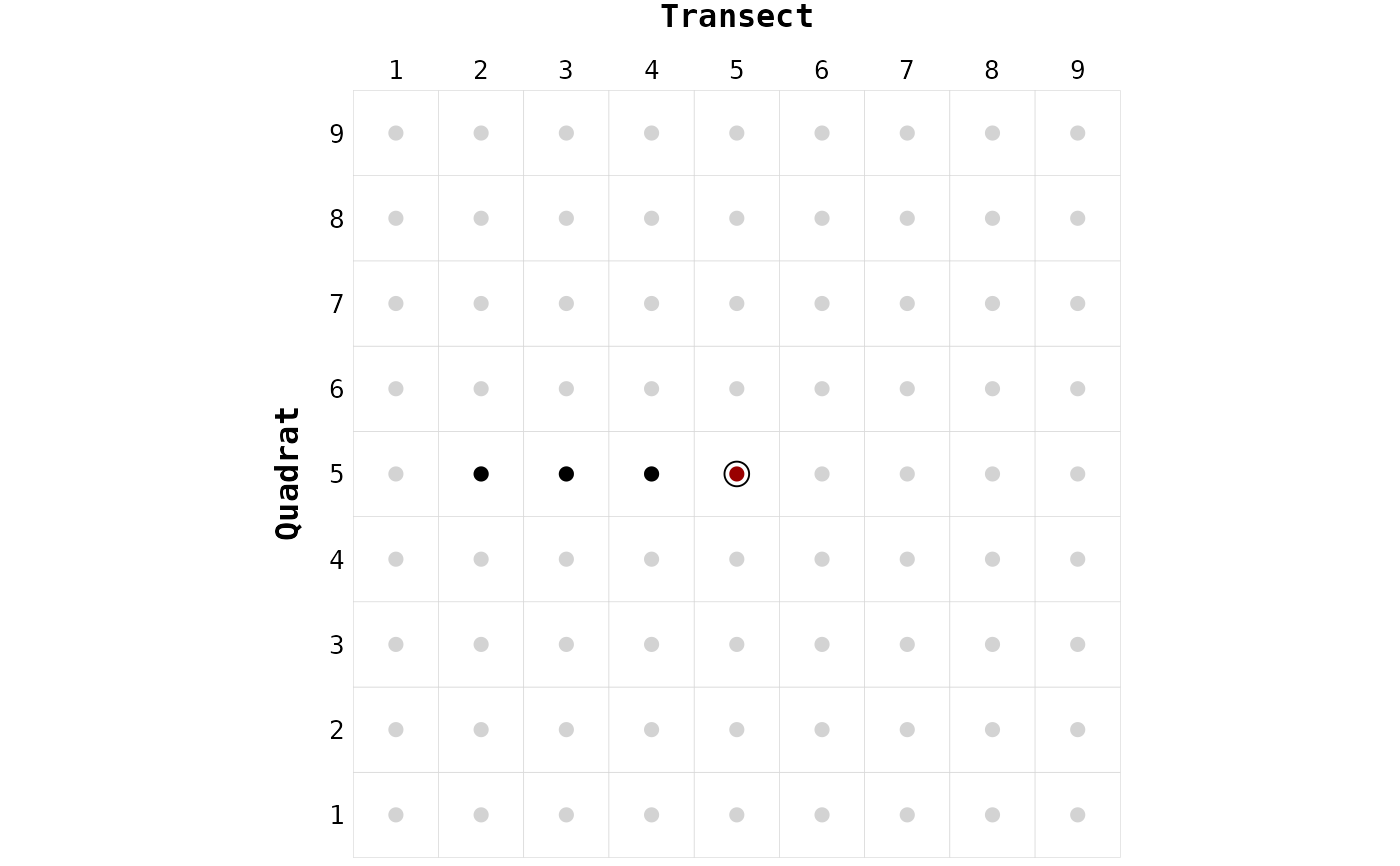For one node (argument focus), finds neighbors among a list of nodes
according to the fool movement.
This movement is derived from the chess game. The fool can only move
horizontally, i.e. through a quadrat.
The detection of neighbors using the fool method can work with
two-dimensional sampling (both transects and quadrats) and
one-dimensional sampling of type transects-only.
For sampling of type quadrats-only, please use the function pawn().
fool(nodes, focus, degree = 1, directed = FALSE, reverse = FALSE, self = FALSE)Arguments
- nodes
a
data.framewith (at least) the following three columns:node,transect, andquadrats. Must be the output of the functioncreate_node_labels().- focus
an
characterof length 1. The node label for which the neighbors must be found. Must exist in thenodesobject.- degree
an
integerof length 1. The maximum number of neighbors to search for.- directed
a
logicalof length 1. IfFALSE(default), search for neighbors in all directions (undirected network). Otherwise, the network will be considered as directed according to the orientations of the network. The default orientation follows the order of node labels in both axes.- reverse
a
logicalof length 1. IfTRUE, change the default orientation of the network. This argument is ignored ifdirected = FALSE. See examples for further detail.- self
a
logicalof length 1. IfTRUE, a node can be its own neighbor. Default isFALSE.
Value
A subset of the nodes (data.frame) where each row is a neighbor
of the focal node.
Details
This function is internally called by create_edge_list() but it can be
directly used to 1) understand the neighbors detection method, and 2) to
check detected neighbors for one particular node (focus).
Examples
library("chessboard")
# Two-dimensional sampling (only) ----
sites_infos <- expand.grid("transect" = 1:9, "quadrat" = 1:9)
nodes <- create_node_labels(data = sites_infos,
transect = "transect",
quadrat = "quadrat")
focus <- "5-5"
# Default settings ----
neighbors <- fool(nodes, focus)
gg_chessboard(nodes) +
geom_node(nodes, focus) +
geom_neighbors(nodes, neighbors)
 # Higher degree of neighborhood ----
neighbors <- fool(nodes, focus, degree = 3)
gg_chessboard(nodes) +
geom_node(nodes, focus) +
geom_neighbors(nodes, neighbors)
# Higher degree of neighborhood ----
neighbors <- fool(nodes, focus, degree = 3)
gg_chessboard(nodes) +
geom_node(nodes, focus) +
geom_neighbors(nodes, neighbors)
 # Directed (default orientation) ----
neighbors <- fool(nodes, focus, degree = 3, directed = TRUE)
gg_chessboard(nodes) +
geom_node(nodes, focus) +
geom_neighbors(nodes, neighbors)
# Directed (default orientation) ----
neighbors <- fool(nodes, focus, degree = 3, directed = TRUE)
gg_chessboard(nodes) +
geom_node(nodes, focus) +
geom_neighbors(nodes, neighbors)
 # Directed (reverse orientation) ----
neighbors <- fool(nodes, focus, degree = 3, directed = TRUE, reverse = TRUE)
gg_chessboard(nodes) +
geom_node(nodes, focus) +
geom_neighbors(nodes, neighbors)
# Directed (reverse orientation) ----
neighbors <- fool(nodes, focus, degree = 3, directed = TRUE, reverse = TRUE)
gg_chessboard(nodes) +
geom_node(nodes, focus) +
geom_neighbors(nodes, neighbors)
